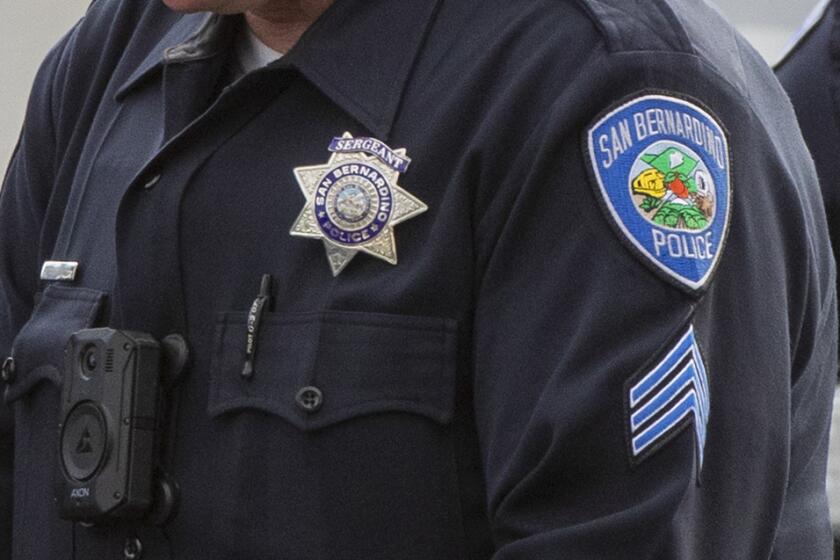L.A. bus, rail fares may increase
- Share via
Amid the worst economic downturn since World War II, the Metropolitan Transportation Authority is planning to increase fares for the first time in two years to help offset a $204-million gap in its operating budget for buses and rail systems.
The proposed fare hike, which will go into effect July 1, is opposed by the Bus Riders Union, which protested the planned increase Tuesday morning outside the MTA headquarters in downtown Los Angeles.
Unless the MTA board of directors rescinds the increase, the one-way cash fare will rise from $1.25 to $1.50, a daily pass will go from $5 to $6 and a monthly pass will increase from $62 to $75. Fares will not be raised for people with disabilities, students, Medicare recipients and people who are 62 or older.
“The monthly pass is going up by $13. That’s a meal on the table. The typical transit rider only makes about $12,000 to $17,000 a year,” said Barbara Lott-Holland of Los Angeles, a member of the Bus Riders Union who relies on the county transit system.
Holland attended the protest with about 25 other people, including representatives from the Natural Resources Defense Council, Los Angeles Bicycle Coalition, Coalition for Clean Air, Transportation for America Campaign and California Public Interest Research Group, or Calpirg.
The MTA board is scheduled to address the fare hike at its Thursday meeting and decide whether to hold a special hearing in May to explain to the public why transit officials believe the increase is necessary. The agency now averages more than 1.5 million boardings on its bus and rail systems per day.
Authority officials estimate that the fare increase — the third in 15 years — is expected to lower the deficit in the operating budget to $180 million next year. The MTA will try to reduce the remaining gap by cutting its staff, reorganizing the agency and employing other cost-saving measures.
The deficit has been caused by a decline in ridership, the loss of state funds and declines in revenue from two of the county’s three transportation sales taxes — all factors driven by the economic recession. Authority officials expect ridership and tax receipts to rebound.
Dave Sotero, an MTA spokesman, said Tuesday that even with the increase, the MTA will still have some of the lowest fares compared to major metropolitan areas such as New York and Chicago, where a one-way ride can cost $2 or more.
Locally, the Riverside Transit Agency and the Orange County Transportation Authority now charge $1.50 one way, $4 for a daily pass and $55 for a 30-day pass. The San Diego Metropolitan Transit System charges $2.25 one way, $5 for a daily pass and $72 for a 30-day pass.
For Terri Thorpe of Norwalk, who regularly uses buses and trains to get to work at a Borders Bookstore in Pico Rivera, the cost of her daily transit pass could go up about 20%, increasing the pinch on her pocketbook.
“Its unfair,” Thorpe said as she headed to catch the Red Line subway at Union Station on Tuesday. “They are going to stick it to the little blue-collar worker who can’t afford a car.”
The sentiment was the same at the nearby protest, where the Bus Riders Union and other transit advocates demanded that the MTA cancel the fare increase and redirect funds from other projects to help close the budget gap.
They also called on U.S. Sen. Barbara Boxer (D-Calif.) to support pending legislation in Congress that would grant local transportation agencies more flexibility in the use of federal transportation funds.
“People struggle every day, scraping together their change, just to buy a daily pass,” said Esperanza Martinez, an organizer for the Bus Riders Union. “MTA has the money. It is all about choices.”
MTA officials say, however, that they cannot transfer funds to the operations budget that are earmarked for construction projects. Though it appears that the agency is flush with cash, they say, there are restrictions on how the MTA can use the revenue from county transportation sales taxes.
More to Read
Sign up for Essential California
The most important California stories and recommendations in your inbox every morning.
You may occasionally receive promotional content from the Los Angeles Times.














